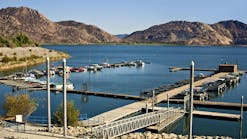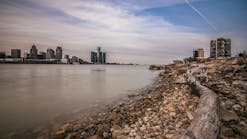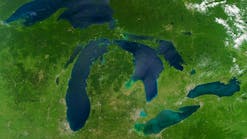In recent years, experts in various fields have deemed water the oil of the 21st century, highlighting parallels between the two as financial commodities, potential catalysts for conflict and abused environmental resources. The tricky thing with water, though, is that unlike oil, no new concoction or device could ever replace or eliminate the need for it.
The demand for water will never subside, but for centuries mankind has taken for granted and mismanaged the valuable resource. Shifting people’s thought patterns and lifestyles and keeping water clean as demand grows will require more than just intelligently designed, well-implemented regulations; public outreach and education are vital components in the equation for success.
The U.S. Environmental Protection Agency has identified storm water runoff as the most common cause of water pollution, making it the ideal place to start. It is not just the “big players” in storm water such as farming and construction professionals who need access to information and resources; small business owners, schoolchildren, gardeners and other community members can make a world of difference with a bit of guidance.
In my travels, I have seen communities utilize various outlets to reach the general public with messages promoting storm water consciousness—bench and bus ads; TV and radio spots; newspaper articles; storm drain markers; watershed signs; and more. Here in Chicago, it is not uncommon to come across water-related forums and documentary-style shows on public-access television stations. Direct mail brochures and freebies, websites, school programs and town-sponsored speaking engagements and volunteer opportunities are other popular outreach methods.
Messages relayed may encourage residents, for instance, to clean up after pets, apply lawn fertilizer sparingly and properly dispose of hazardous materials such as motor oil and paint. Encouraging the public to think about storm water and boosting underlying knowledge will help ensure that water does not become the notoriously problematic resource oil is today. The involvement of average citizens will just about guarantee adequately supported and funded projects and the availability of clean water for generations to come.
Download: Here





